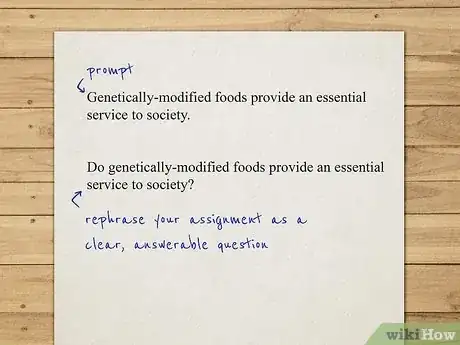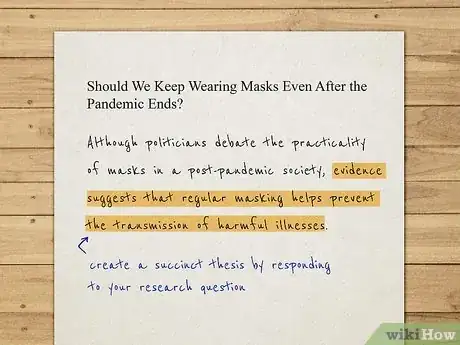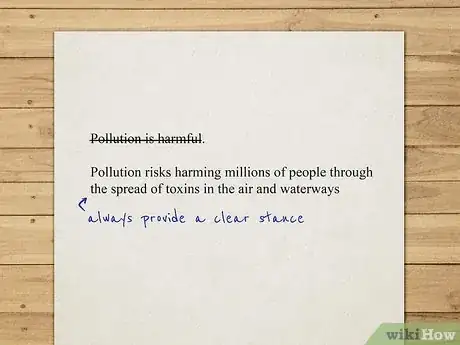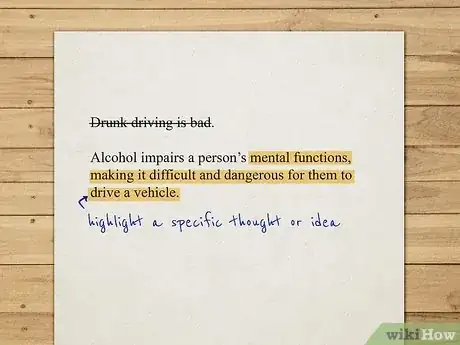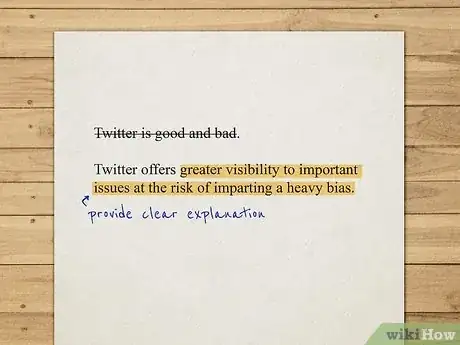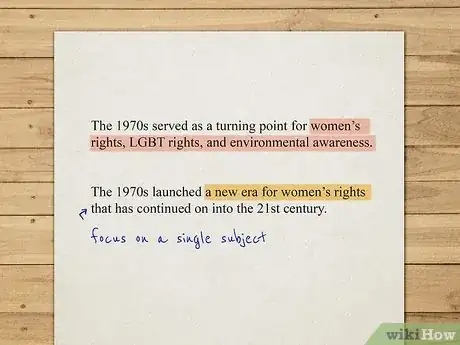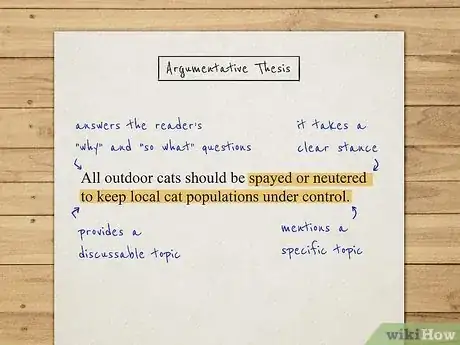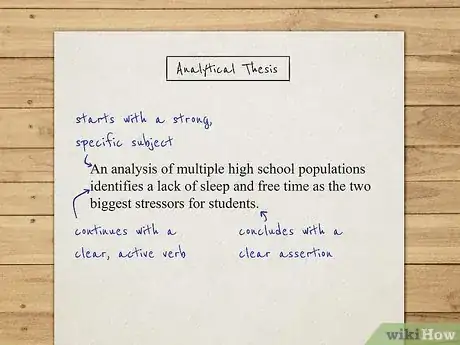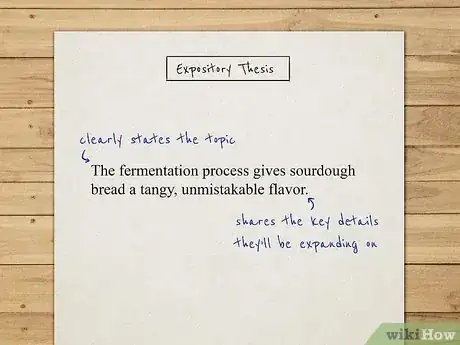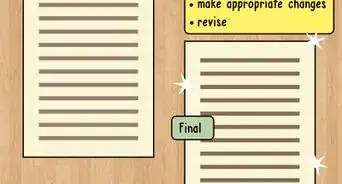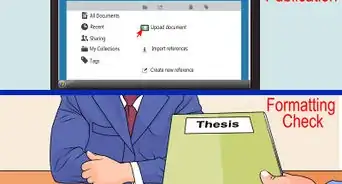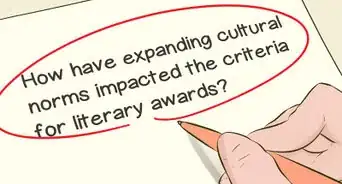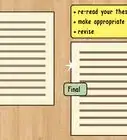This article was co-authored by Bryce Warwick, JD and by wikiHow staff writer, Janice Tieperman. Bryce Warwick is currently the President of Warwick Strategies, an organization based in the San Francisco Bay Area offering premium, personalized private tutoring for the GMAT, LSAT and GRE. Bryce has a JD from the George Washington University Law School.
There are 7 references cited in this article, which can be found at the bottom of the page.
This article has been viewed 97,902 times.
Do you have a big term paper or essay on your academic horizons? Before diving into your assignment, you’ll need a thesis: a clear, sentence-long explanation at the end of your first/introductory paragraph that defines what your paper will be analyzing, explaining, or arguing.[1] A good thesis is easy to write if you know what to include—that’s why we’re here to walk you through everything you need to know. Read on for plenty of tips, explanations, and examples to help take your thesis-writing game to the next level.
Steps
How do you write a strong thesis statement?
-
1Identify the type of thesis you need to write. Most academic writing assignments fall into 3 categories: argumentative, analytical, and expository. Argumentative assignments invite you to take a side on a given topic, analytical assignments ask you to take a closer look at a specific issue, and expository assignments expect you to explain something in more detail. Take a quick read through your prompt and see which category it falls under.[2]
- Argumentative prompt example: Technology helps students succeed in school. The prompt wants you to state whether you agree or disagree with this stance, and why.
- Analytical prompt example: Do video games influence the thoughts and actions of teenagers? The prompt wants you to research both sides of this controversial topic and come up with an analysis.
- Expository prompt example: Why is a calorie deficit diet plan effective for weight loss? The prompt wants you to go into detail on a specific topic.
-
2Transform your assignment into a research question. At the end of the day, your thesis is an answer to some type of question—so, the key to writing a good thesis is knowing what that question is. Read through your assignment prompt and try rephrasing it as a clear, answerable question.[3]
- The prompt “Genetically-modified foods provide an essential service to society” could be changed to “Do genetically-modified foods provide an essential service to society?”
- The prompt “Many people are divided over the advantages and disadvantages of wearing masks” could be adjusted to “What are the pros and cons of wearing masks?”
Advertisement -
3Create a succinct thesis by responding to your research question. Do some basic research on your prompt or topic so you have a basic understanding of it. Look for common themes and connections that seem to pop up. Then, draft a working thesis based on the facts, themes, and evidence that you discover during your research.[4]
- Example: GMOs provide a high volume of delicious, long-lasting food, making them an essential service to society.
- Example: Although politicians debate the practicality of masks in a post-pandemic society, evidence suggests that regular masking helps prevent the transmission of harmful illnesses.
- Remember—your thesis is a work in progress! You’re welcome to tweak, adjust, and completely change your thesis so it accurately represents your research.
- If your professor or teacher assigns an essay or paper with a pre-assigned topic, you might not have to do as much research.
References
- ↑ https://writing.wisc.edu/handbook/process/thesis_or_purpose/
- ↑ https://writingcenter.uagc.edu/writing-a-thesis
- ↑ https://writingcenter.unc.edu/tips-and-tools/thesis-statements/
- ↑ https://writingcenter.unc.edu/tips-and-tools/thesis-statements/
- ↑ https://depts.washington.edu/pswrite/thesisstmt.html
- ↑ https://writingcenter.unc.edu/tips-and-tools/thesis-statements/
- ↑ https://www.norwellschools.org/cms/lib02/MA01001453/Centricity/Domain/206/Thesis%20Statement.pdf
- ↑ https://writingcenter.unc.edu/tips-and-tools/thesis-statements/
- ↑ https://www.norwellschools.org/cms/lib02/MA01001453/Centricity/Domain/206/Thesis%20Statement.pdf

